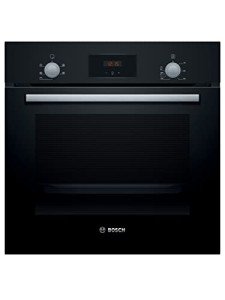The Rise of Built-in Electric Ovens: Enhancing Kitchens with Style and Functionality
As modern kitchen areas progress to become more than simply a place for cooking, the need for appliances that flawlessly mix design and function has actually increased. One of the most in-demand kitchen appliances in contemporary homes is the built-in electric oven. This short article explores the advantages, features, and considerations when choosing built-in electric ovens, offering property owners the insights required to make educated decisions.
What is a Built-in Electric Oven?
A built-in electric oven is a device that is installed straight into the kitchen cabinets instead of being free-standing. This design enables a cleaner, more streamlined appearance in the kitchen. Built-in electric ovens can be positioned at different heights, offering ergonomic benefits and boosting availability for numerous jobs, consisting of baking, broiling, and roasting.
Secret Features of Built-in Electric Ovens
Built-in electric ovens are packed with functions created to raise cooking experiences. These consist of:
- Variability in Styles and Sizes: Available in different designs (single, double, wall) and sizes, built-in ovens can fit any kitchen design and design.
- Advanced Cooking Technologies: Many designs feature convection cooking, steam cooking, and accuracy temperature manages to enhance cooking efficiency.
- User-Friendly Controls: With digital display screens and touch controls, built-in ovens allow for precise changes and cooking timers.
- Self-Cleaning Options: Some built-in electric ovens are equipped with self-cleaning cycles that make maintenance a breeze.
- Smart Technology Integration: Modern built-in ovens might feature wise abilities, allowing users to monitor cooking from another location through smartphone apps.
Benefits of Built-in Electric Ovens
- Space Efficiency: Built-in electric ovens conserve flooring space, making them ideal for smaller kitchen areas where square video is restricted. Their design permits optimizing cabinet area above and listed below.
- Visual Appeal: The smooth and integrated look of built-in ovens matches modern kitchen designs, using a seamless shift in between appliances and cabinetry.
- Increased Functionality: With different configurations (e.g., double ovens), house owners can prepare multiple meals at various temperature levels concurrently, boosting meal preparation performance.
- Enhanced Accessibility: Built-in electric ovens can be installed at eye level, making it easier to examine meals without flexing down, therefore lessening stress.
- Security: Built-in ovens are normally designed to have strong setup, reducing the danger of tipping over. Additionally, features like cool-to-the-touch doors boost security, specifically in homes with children.
Selecting the Right Built-in Electric Oven
When choosing the ideal built-in electric oven, numerous aspects must be considered. Here's a list of vital requirements:
- Size and Dimensions: Measure the readily available space in the kitchen and guarantee the picked oven fits properly.
- Capacity: Consider the volume of food preparation required for household size or amusing.
- Cooking Features: Evaluate the particular cooking functions required, like convection modes or extra racks.
- Style Preference: Choose in between various styles and finishes that will match the kitchen's visual.
- Guarantee and Customer Support: Research the maker's service warranty and accessibility of consumer assistance for maintenance and repair work.
Comparison of Built-in Electric Ovens
| Feature | Single Built-in Oven | Double Built-in Oven |
|---|---|---|
| Capacity | 3.0 to 5.0 cu. ft. | 6.0 to 10.0 cu. ft. |
| Cost | Generally lower | Greater due to more functions |
| Cooking Versatility | Minimal to one dish | Can prepare numerous meals at differing temperature levels |
| Energy Efficiency | Typically effective | May use more power due to bigger size |
| Installation Complexity | Simpler | More complicated due to extra weight |
Upkeep and Care for Built-in Electric Ovens
To make sure durability and ideal performance, regular upkeep of built-in electric ovens is crucial. Here are some pointers for care:
- Regular Cleaning: Wipe down surfaces after each use to avoid build-up. Usage proper cleaners for the oven exterior and interiors.
- Examine Seals and Gaskets: Inspect door seals regularly to ensure they are undamaged to keep cooking efficiency.
- Calibrate the Oven: Check oven temperatures with an oven thermometer to guarantee it's cooking at the proper temperature level.
- Follow the Manufacturer's Guidelines: Adhere to operating standards provided by the manufacturer for safe and effective use.
Frequently Asked Questions About Built-in Electric Ovens
Q1: Are electric ovens more energy-efficient than gas ovens?A1: Generally, electric ovens can be more energy-efficient due to the fact that they heat more equally and maintain temperature better once warmed. However, this can vary based on use patterns and specific models. hob and built in oven package : Can built-in electric ovens be repaired?A2: Yes, built-in electric
ovens can be fixed. Nevertheless, it is suggested to work with professionals for repairs due to the complex installation. Q3: Do built-in ovens take longer to set up compared to freestanding models?A3: Yes, built-in ovens usually require more
complicated installation procedures, which may involve kitchen cabinetry modifications, electrical circuitry, and leveling. Q4: What is the average life-span of a built-in electric oven?A4: A properly maintained built-in electric oven can last in between 10 to 15 years.
Built-in electric ovens are changing kitchens by combining performance, visual appeal, and sophisticated innovation. By thinking about the functions and advantages
, property owners can make a well-informed option for their cooking needs. As cooking trends shift towards more integrated styles, the built-in electric oven continues to be a staple in modern kitchen areas, providing both style and substance for cooking lovers all over.

